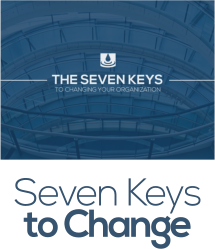


Why Conduct Leadership Development & Coaching Programs?
Leadership may be the single most essential element of a successful organization. It’s also an arena in which many organizations experience their greatest deficiencies. Good leaders share certain characteristics. They know how to…
- Transmit the organization’s vision so people resonate with it, are inspired by it, and sign on to be part of it.
- Model the behaviors they want to see, and reinforce positive change in others by talking about the vision, celebrating it, and building rewards into the system
- Create the conditions for everyone in the organization to be successful in achieving the vision.
- Effectively link the work of their organization to other groups and organizations and the larger environment.
However, the reality is that most organizations select people for leadership positions based on their technical skills; and while these are important they are not sufficient. Therefore, it is therefore essential that leaders are provided with additional training and assistance to help them.
When Do You Need Leadership Development or Coaching?
Effective leadership development and/or coaching are important when…
- Someone has taken on a leadership role for the first time, or with a significantly expanded scope.
- An individual leader wants to develop to his or her fullest potential.
- A leader is experiencing significant difficulties or challenges.
- The organization needs to develop a pool of future leaders to fill key positions.
- The organization wants to spread leadership abilities throughout.
What Makes Leadership Development & Coaching Programs Effective?
Effective leadership development and coaching programs…
- Are tailored to the organization’s culture and strategy to create natural reinforcement for the skills and knowledge that are gained.
- Ensure that participants are genuinely motivated to learn and apply the skills taught within the program.
- Teach pragmatic skills and provide assistance with hands-on practice so the skills are effectively transferred into each individual’s day-to-day work.
- Build in follow-up, including plans for ongoing development.
While all of these are essential considerations, the success of any program rests with the quality of the facilitator/coach.
What Makes a Leadership Development Program Facilitator and Coach Effective?
A good coach and leadership development facilitator…
- Understands the necessary skills and attributes for leadership and how to best develop these in other people.
- Is a role model for leadership skills and abilities.
- Creates a sense of safety for experimentation and confidence about the prospects for learning and change.
- Helps participants place the new knowledge and skills into the organizational context so they are effectively applied on the job.
For over 30 years, I have conducted leadership development programs and coached leaders in all kinds of organizations, from first-line supervisors to senior executives.
Leadership Development & Coaching Clients Include…
- Gillette Corporation
- Brookings Institute and American University executive development programs
- Michigan State University
- Booz Allen Hamilton
- University of Minnesota Public Health Institute
- Bureau of the Census
- Institute for the Study of Public Policy Implementation at American University
- Mount Sinai Medical Center
- New York University Medical Center
- American Association of Veterinary Medical Colleges
- U.S. Department of Agriculture
- Executive Leadership in Food Safety (in partnership with International Institute for Cooperation and Agriculture)
- National Institutes of Health
- Centers for Disease Control
Daniel is an incredible advisor and coach; we quickly built a strong trust. He is incredibly perceptive and has an innate ability to synthesize leading theory and the on-the-ground situation; the result is actionable advice.
Daniel has incredible knowledge about organizations and leadership, and his advice and recommendations are practical and highly useful.



